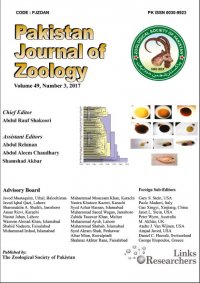Low Dose of Azithromycin Enhances the Anticancer Efficacy of Sorafenib in HepG2 Cell Line
Low Dose of Azithromycin Enhances the Anticancer Efficacy of Sorafenib in HepG2 Cell Line
Dabeeran Zehra1, Zahida Memon1, Shumaila Usman2,*, Almas Jabeen3, Kauser Ismail1 and Rehan Ahmed Siddiqui2
ABSTRACT
Sorafenib, a multi kinase inhibitor, is the only FDA approved drug designed to target advanced hepatocellular carcinoma (HCC). However, unbearable side effects, insufficient efficacy and resistance mechanisms against this drug, generates necessity to develop novel therapeutic strategies and drugs. Recently macrolides have drawn attention of researchers in the treatment of cancer owing to their proposed chemotherapeutic role, based on the concept of repurposing, as they are well tolerated, less toxic and inexpensive. In this study we evaluated the combine effects of low dose of Azithromycin with Sorafenib in HepG2 cell line. Co-treatment of Sorafenib and Azithromycin showed enhanced inhibition of cell growth and suppressed the MAPK pathway associated with cellular proliferation, however the effects on cellular apoptosis were found to be insignificant.
To share on other social networks, click on any share button. What are these?









